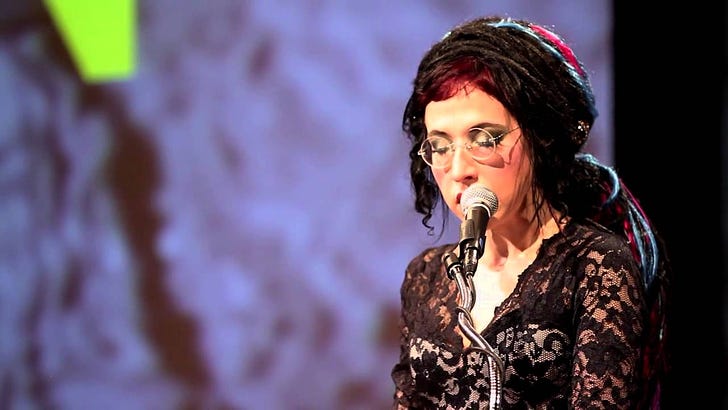Who is Sofi Oksanen…
One of the most awarded literary authors in Scandinavia and translated into more than 40 languages, Finnish-Estonian novelist and playwright Sofi Oksanen is an icon of her field. Called a “literary phenomenon” by The Times, Oksanen has since her international breakthrough novel, Purge, proved time and again that she is a mistress of human drama, incorporating historical and contemporary issues that move the reader.
Why Sofi thanks Ukraine…
I'm grateful to Ukraine, because:
I've been writing about Russian colonialism and its consequences for 20 years. I define myself as post-colonial author. But when I said that aloud, Western journalists very seldom understood what I meant:
They didn't connect Estonia's occupation history nor the USSR with colonialism. Since February I haven't had to explain this.
- You made the energy-weapon visible. Even though Russia has been using it for ages, the Western countries just didn't see it.
- You made the Russian cultural appropriation visible. Even Google defined Ukrainian artists like Repin and Gogol Russians. The West didn't understand it's a problem even though cultural appropriation is a tool to make the colonialism look like "justified" or "natural".
- You made the Russian colonialism visible. In Baltic states we saw the rise of colonial winds already when Putin rose to power. But the West was deaf to our words about this.
- You made the Russian nazi-rhetoric visible and finally it seems that Western countries understand that for Russia a nazi is a synonym for non-Russian. In Baltic states we have been called Nazis by Russians since 1940, just like you.
But the West was totally deaf to this. Instead, when RU called us nazis, the West started to look for nazis in our countries even though they should've been looking for nazis in the Kremlin.
I'll end for now with a "fun" fact: Baltic actors had always the honour of playing the Nazi-roles in Soviet movies.
Nazis and Blondes (2008)
Veteran actors from the 3 Baltic countries - Estonia, Latvia and Lithuania - gather at a castle in Latvia to receive awards for their roles as Nazi villains in propagandist Soviet war films. They reminisce about the films that made them famous throughout the USSR, but also stigmatized the Baltic countries as Nazi sympathizers in the eyes of many Russians - a misconception that is nowadays exploited by the Russian media, desperate to label the Baltic countries as a fascist haven.
Purge
Purge is a breathtakingly suspenseful tale of two women dogged by their own shameful pasts and the dark, unspoken history that binds them.
When Aliide Truu, an older woman living alone in the Estonian countryside, finds a disheveled girl huddled in her front yard, she suppresses her misgivings and offers her shelter. Zara is a young sex-trafficking victim on the run from her captors, but a photo she carries with her soon makes it clear that her arrival at Aliide's home is no coincidence.
When the Doves Disappeared (2016)
Communist Estonia, 1941. As the Allies and the Axis clash in battle, two Estonian cousins are fleeing from the Red Army: Roland, a loyal freedom fighter, and Edgar, an opportunistic mercenary. When the Nazis take control of the country, Roland goes into hiding. Edgar abandons his wife, Juudit, and transforms himself into a loyal supporter of Hitler’s regime.
Flash forward to 1963: Estonia is back under communist control behind the Iron Curtain. Edgar has taken on yet another identity as a Soviet apparatchik, desperate to hide the secrets of his past and maintain his connections to power. But his fate remains entangled with Roland and Juudit, who may hold the key to uncovering the truth. In a fast-paced page-turner that switches between these two time periods, Sofi Oksanen brings to life an unforgettable story of deception, surveillance, passion, and betrayal.





